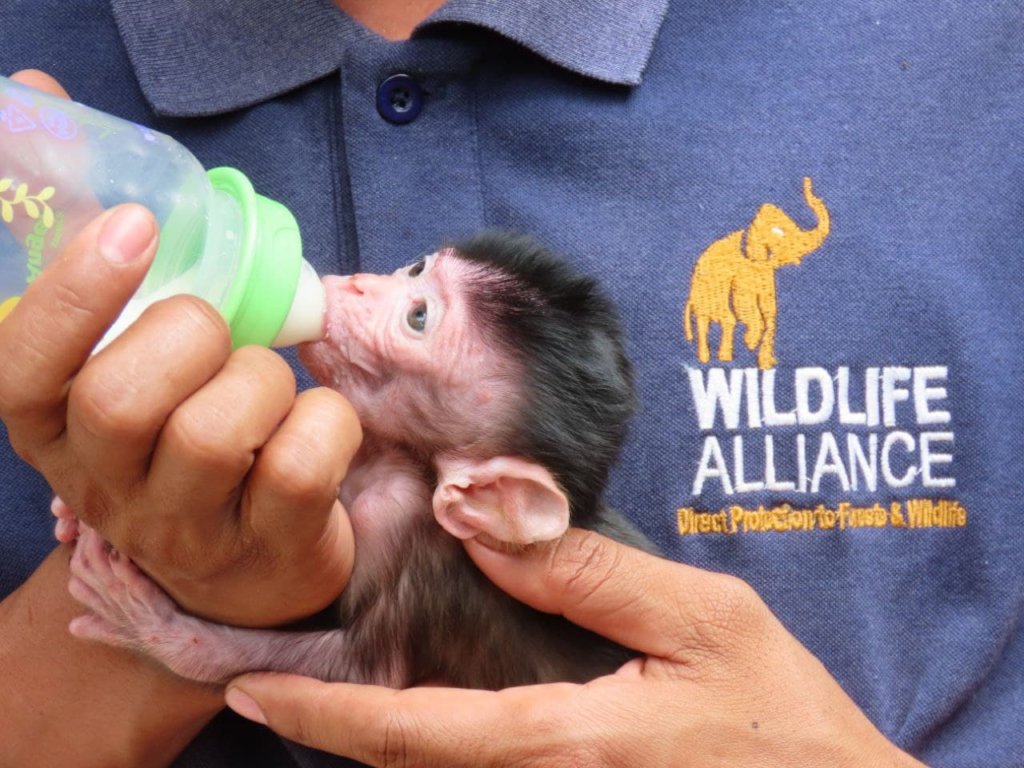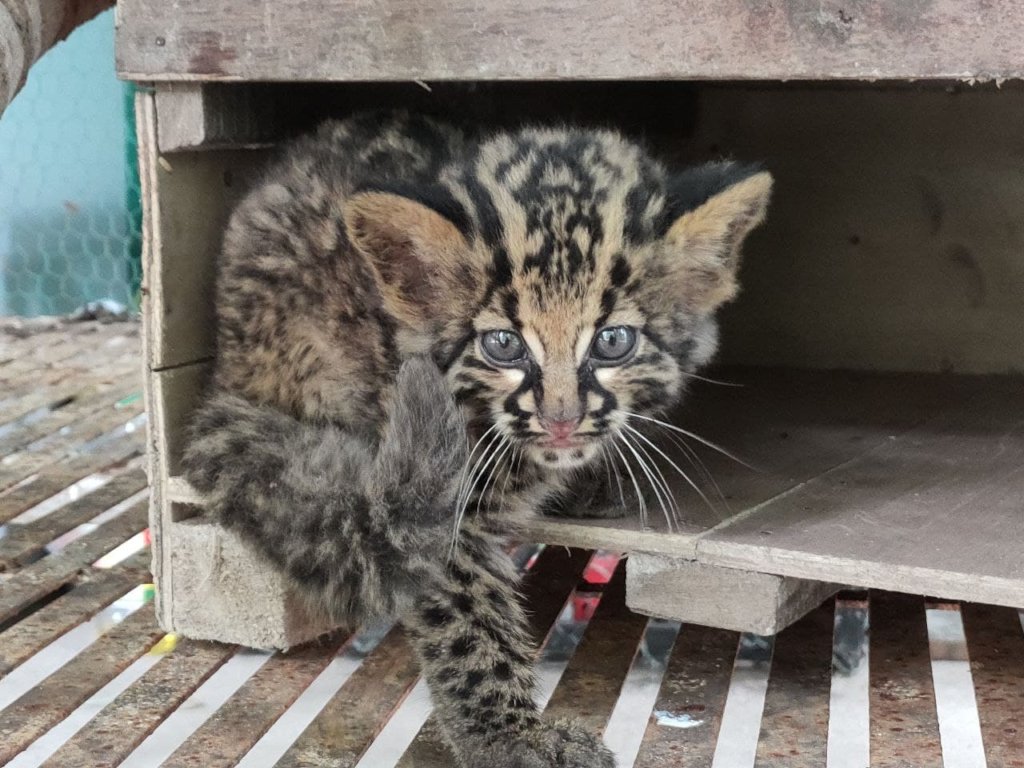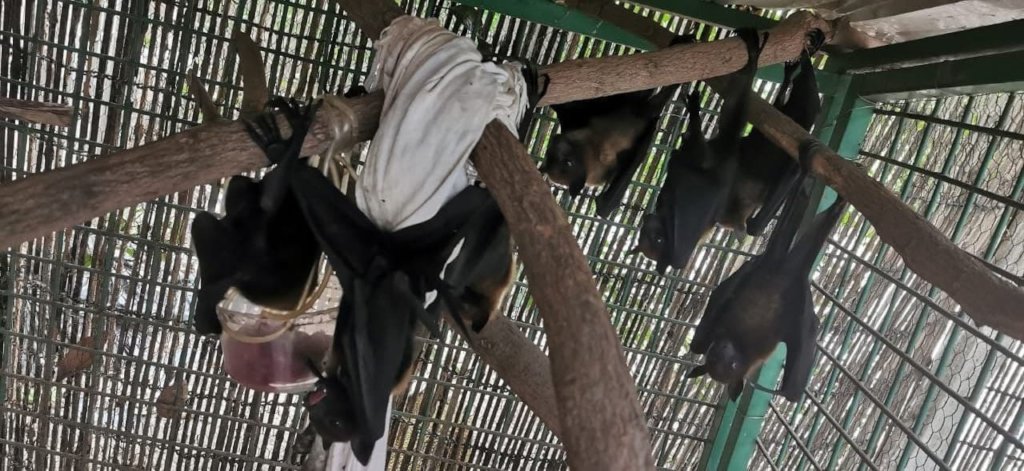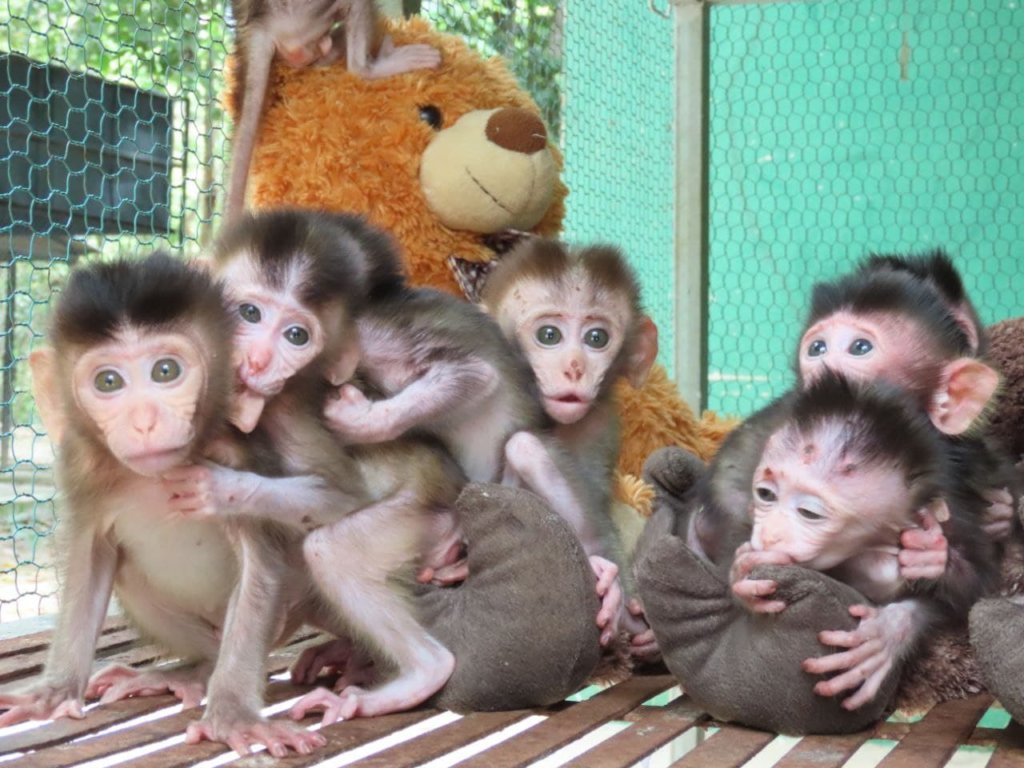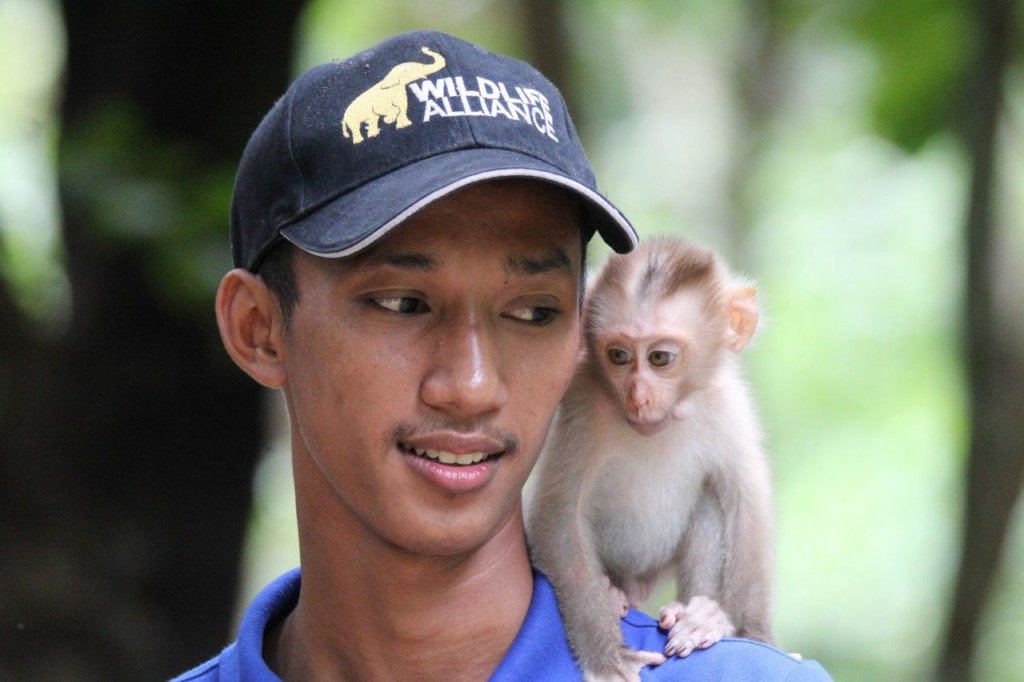By Nick Marx | Director, Wildlife Rescue & Care Program
Despite Covid-19 wreaking havoc throughout Cambodia there has been no let up for us in new animals arriving at Phnom Tamao. Many of these have come in the form of babies. On June 26th a veterinary clinic in Siem Reap brought a cage full of fruit bats they hand raised. The reason for this is extensive road work and alterations are being conducted in Siem Reap without regard for the wonderful trees that line the streets in the city, within which there are colonies of fruit bats. Many infant bats have fallen to the ground and been collected by caring passers-by and then handed in to veterinary clinics. The young bats that arrived on Saturday are now weaned and no longer need the bottle. We have placed them in one of our bird aviaries and hope to release them when they are a little bigger. I am suggesting that in the future, under similar circumstances, rather than being driven 370 kilometers to Phnom Tamao, the bats be soft released from their cages in Siem Reap, which should work fine.
Other babies that have arrived are younger and many have required bottle feeding every two hours, which is giving our Nursery staff, Pisei, Ran and Par, sleepless nights. An extremely rare marbled cat kitten was confiscated by one of our forest ranger patrol teams in Botum Sakor in the Cardamom Mountains on June 19th and brought to our Nursery. It was wild and frightened, but has settled down well and is now eating meat, so it should be out of the dangerous stage for rescued baby animals when they are still at risk of dying, which is a particularly high risk in the period immediately following the trauma of capture and transport.
A baby silvered langur was rescued by our Wildlife Rapid Rescue Team and although a little older, it still requires a bottle, as do 3 baby common palm civets which were wild-born at Phnom Tamao and fell out of their nest in a tree during a wind storm.
However, the biggest headache we are getting at present comes in the tiny form of the many baby long-tailed and pig-tailed macaques that are stolen from their mothers by videographers and used for financial purposes, the new owners placing posts on social media in an attempt to attract viewers and hence money. There are currently 15 rescued infant macaques in our Nursery, many of these still requiring milk feeds every 2 hours, night and day. The problems do not stop once the babies are old enough to feed themselves. We still have to house them and decide the future for the endless tame monkeys that we receive, in part due to the fact that the laws governing the capture of these infants are not strong enough and penalties are rarely imposed when the babies are confiscated.
I feel sympathy for Pisei and his colleagues in Nursery. I tell them to try to get the baby macaques feeding themselves as soon as possible and to cut down on the night feeds so they can get a little sleep themselves. Pisei replies that he would not do this and that in any case the babies wake up crying when they are hungry, which wakes up the keepers, so they have to get up anyway. We are blessed to have such dedicated keepers.
Your donations help to pay their salaries and feed all these baby animals and more – thank you so much for your support!
Project reports on GlobalGiving are posted directly to globalgiving.org by Project Leaders as they are completed, generally every 3-4 months. To protect the integrity of these documents, GlobalGiving does not alter them; therefore you may find some language or formatting issues.
If you donate to this project or have donated to this project, you can receive an email when this project posts a report. You can also subscribe for reports without donating.
Support this important cause by creating a personalized fundraising page.
Start a Fundraiser